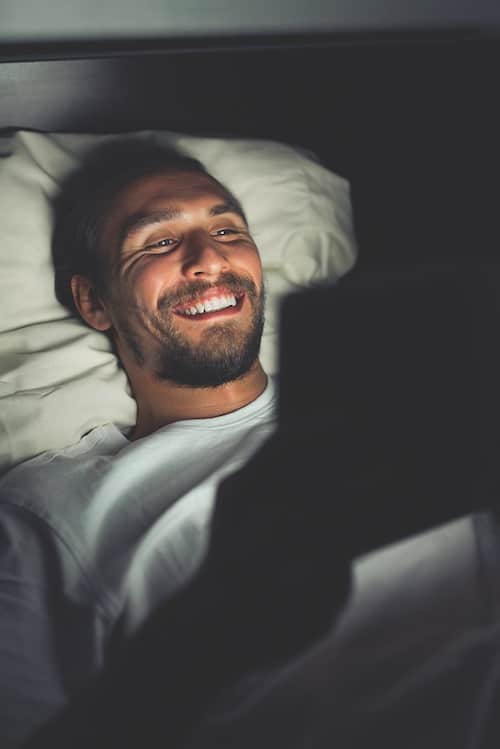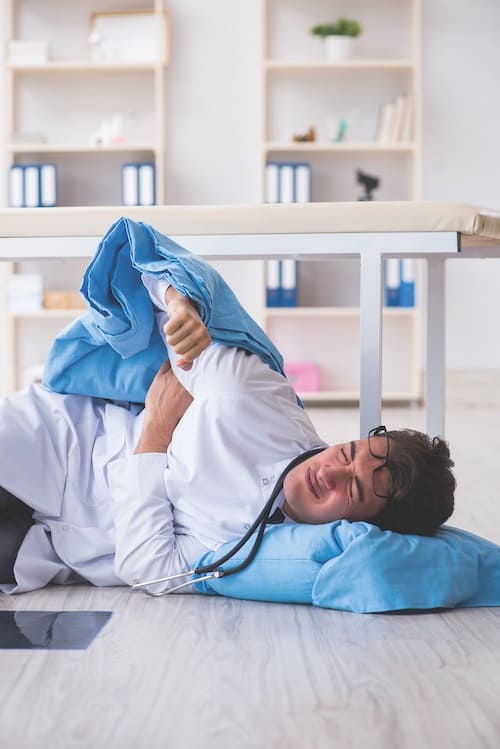And more of the latest sleep news and research

A study by researchers in Brazil has found that octopuses, like humans, have two different sleep states and might even dream.
The study, published March 25 in the journal iScience, shows that octopuses undergo color changes while sleeping. These color changes correspond with the different sleep states, according to a March 25 Reuters article.
During quiet sleep, the octopus is still. Its skin is pale and its eyes are contracted to a slit, the article said. This stage lasts about seven minutes. During active sleep, the octopus changes skin color and texture. Both eyes move and the body contracts with muscular twitches. This phase lasts less than a minute.
The octopus then repeats the cycle, which appears to be similar to humans’ non-REM and REM sleep stages, the researchers found.
Sylvia Medeiros, lead author of the study and doctoral student of neuroscience at the Brain Institute of the Federal University of Rio Grande do Norte, said it appears octopuses do dream or something similar to that. “If octopuses indeed dream, it is unlikely that they experience complex symbolic plots like we do,” she said. “Active sleep in the octopus has a very short duration. If during this state there is any dreaming going on, it should be like small video clips, or even GIFs.”
These findings add to the ongoing search to understand the origins and evolutions of sleep.
Tackling Revenge Bedtime Procrastination

Have you ever found yourself staying up too late because you simply didn’t want to give up the last hours of the day?
Researchers call this phenomenon revenge bedtime procrastination. In a 2014 study from the Netherlands, scientists defined it as “failing to go to bed at the intended time, while no external circumstances prevent a person from doing so,” according to a March 24 Wired article.
Michael Breus, diplomate of the American Board of Sleep Medicine and fellow of the American Academy of Sleep Medicine, recommended a power-down hour to help people step away from technology and wind down.
According to the Wired article, the power-down hour is composed of three 20-minute segments:
• The first 20 minutes are dedicated to things that need to be done.
• The second 20 minutes are set aside for hygiene, such as a hot bath.
• The final 20 minutes are for relaxation, such as meditation, prayer or journaling.
“I understand that people are not having any real alone time right now, and that scrolling on your phone is fun, but you lose track of time,” Breus said. “My big question is: If you want some ‘me’ time, why not schedule it? If you just can’t figure that out, set a timer and give yourself a pattern interrupt. When the timer goes off, go brush your teeth, come back, and — if you just have to scroll — set it for 15 minutes and try again.”
Exercise Does Improve Rest

People might not notice a difference in their sleep if they work out, but it does make a difference, according to a study conducted by researchers at the University of Tsukuba in Japan.
Researchers asked a group of healthy young men to participate in an hour of vigorous exercise, after which they measured slow wave sleep in a lab and then asked the participants how they slept.
“The results were surprising,” said lead scientists Insung Park and Javier Diaz in a news release. “We found that exercise improved the quality of sleep as measured using objective techniques, while the participants reported no change in the quality of their sleep.”
The scientists theorize muscle soreness and stress might have led the participants to think they had not slept as well as they did. The participants were not used to such intense exercise.
“The results of the subjective evaluations of sleep quality indicate that regular moderate exercise may be more beneficial for perceived sleep quality than occasional vigorous exercise, which might not have a subjective effect despite objective improvements in sleep,” said senior author Kaspar E. Vogt.
The study was published in the March issue of Scientific Reports.
Consistent Sleep Schedule Is Best

If you’ve ever watched medical TV dramas, you have a sense that medical interns snatch sleep at odd hours. It turns out, those irregular sleep schedules make a difference in mood and depression.
A study conducted by researchers at the University of Michigan in Ann Arbor, Michigan, used data from 2,100 medical interns over one year. Participants wore sleep tracking devices, recorded their moods on a smartphone app and took quarterly tests for signs of depression.
Those who had a more variable sleep schedule had worse moods and more depressive symptoms than those whose sleep schedule was more consistent, according to a news release.
“These findings highlight sleep consistency as an underappreciated factor to target in depression and wellness,” said Srijan Sen, leader of the Intern Health Study.
Researchers hope to study other populations, such as the parents of young children, to see if the same holds true.
Number Crunching

12% — The decrease in Covid-19 infection risk to frontline healthcare workers with each additional hour of sleep at night.
Source: Study of 2,844 frontline healthcare workers published March 22 in BMJ Nutrition, Prevention and Health.
Pandemic Habits Contributing to Poor Sleep

It’s no secret that the stress of Covid-19 has done a number onsleep during the past year. A study published in January found a 37% increase in insomnia compared with prepandemic rates. But stress might not be the only culprit.
In a March 19 article on Today, registered dietician Samantha Cassetty noted that some pandemic habits might be to blame.
1
You’re skipping your morning commute. A morning commute exposes you to early morning sunshine, which contributes to nighttime melatonin production. If you’re working from home, try spending at least 10 to 15 minutes outside in the morning.
2
Your magnesium levels are low. Magnesium plays a part in calming your nervous system so you can sleep. Low magnesium also is linked to anxiety, which causes sleep disturbances. The mineral is found in leafy green vegetables, whole grains, nuts, seeds and dark chocolate. Even if you’re eating these foods, alcohol and stress can lead to excretion of magnesium. Try to increase your intake of magnesium-rich foods by adding a handful of leafy greens to smoothies, soups and pasta dishes; snacking on nuts and seeds; and switching to whole grains. Before taking a magnesium supplement, check with your doctor because it can interfere with certain medications, she wrote.
3
Your diet is high in added sugars. About 66% of adults eat a diet high in added sugars, which is known to contribute to lighter, less restorative sleep. Take a look at your diet and see where you can reduce these sugars.
4
You’re scrolling social media before bed. Blue light is to blame for suppressing melatonin production. Either shut off your devices two to three hours before bed or employ the phone setting that reduces blue light at night.




